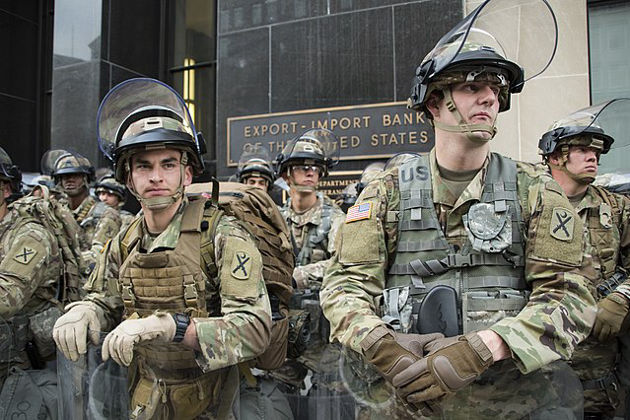Move FM Global News

800 National Guard troops sent to Washington D.C.
Aug 15, 2025WASHINGTON, D.C.: U.S. President Donald Trump this week deployed 800 National Guard troops to Washington, D.C., temporarily assuming control of the city’s police department—an extraordinary assertion of presidential authority in the nation’s capital.
The move, which bypasses the city’s elected leadership, reflects a second-term governing style marked by aggressive use of executive power, often in defiance of political norms and with few modern precedents.
Trump defended the intervention as a necessary measure to “rescue” Washington from what he described as rampant lawlessness. “Our capital city has been overtaken by violent gangs and bloodthirsty criminals,” he said at the White House.
While violent crime spiked in 2023, official data shows it has since dropped sharply, down 35 percent in 2024 and another 26 percent in the first seven months of 2025.
This is the second time this summer that Trump has sent troops into a Democratic-led city. In June, he ordered National Guard forces to Los Angeles without California Governor Gavin Newsom’s approval, prompting a federal court case in San Francisco over whether he violated U.S. law. Trump has also warned that other Democratic strongholds, including Chicago, could face similar action.
During his campaigns, Trump’s “law and order” rhetoric often targeted majority-Democratic cities with large Black populations, including Baltimore, Chicago, and Washington. In recent days, hundreds of federal officers and agents from more than a dozen agencies have been deployed across the capital.
Attorney General Pam Bondi is overseeing the police department during the federal control period. The U.S. Army said the Guard’s role would include administrative, logistical, and law enforcement support, with 100–200 troops on duty at any given time.
D.C. Mayor Muriel Bowser rejected Trump’s depiction of a city overrun by crime, noting that violent crime is at its lowest in over three decades. While acknowledging that federal law grants the president broad powers in emergencies, she maintained her administration would cooperate with federal authorities while disputing his claims. City Attorney General Brian Schwalb called Trump’s move “unlawful” and said legal options were being explored.
Trump invoked a section of the District’s Home Rule Act that allows the president to take over the police force for 30 days during an “emergency.” He has also hinted at removing D.C.’s local autonomy entirely and imposing complete federal control. At the same time, his administration has cut the National Capital Region’s security funding by 44 percent, reducing it by US$20 million this year.
The president further pledged to clear homeless encampments from federally owned land in the city, without specifying relocation plans. While federal authorities can remove encampments from national parkland, they cannot legally expel people from the city solely for lacking shelter.
The D.C. National Guard—2,700 troops under presidential command—has been deployed in the capital before, including during the January 6, 2021, Capitol riot and the 2020 racial justice protests.


